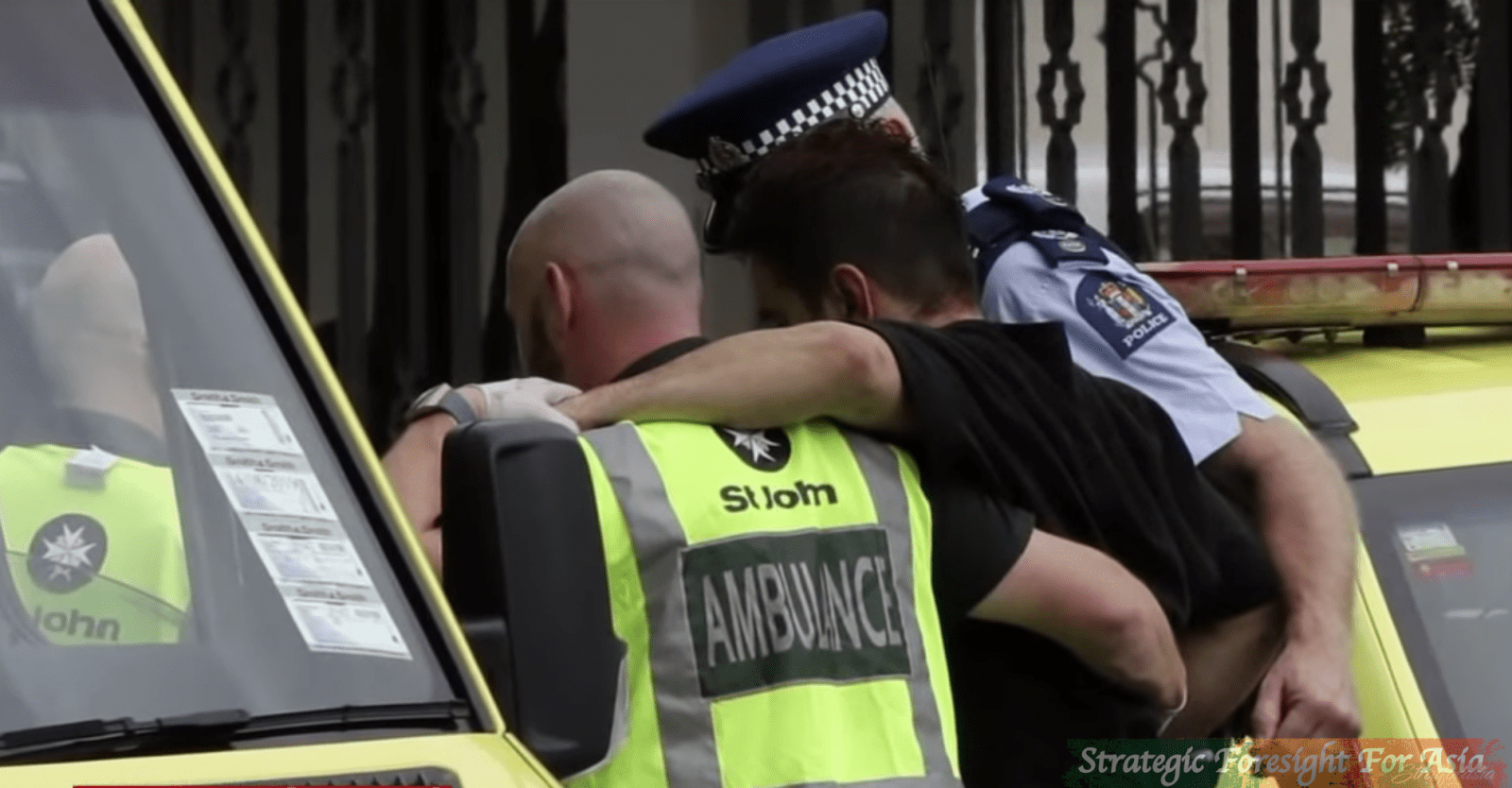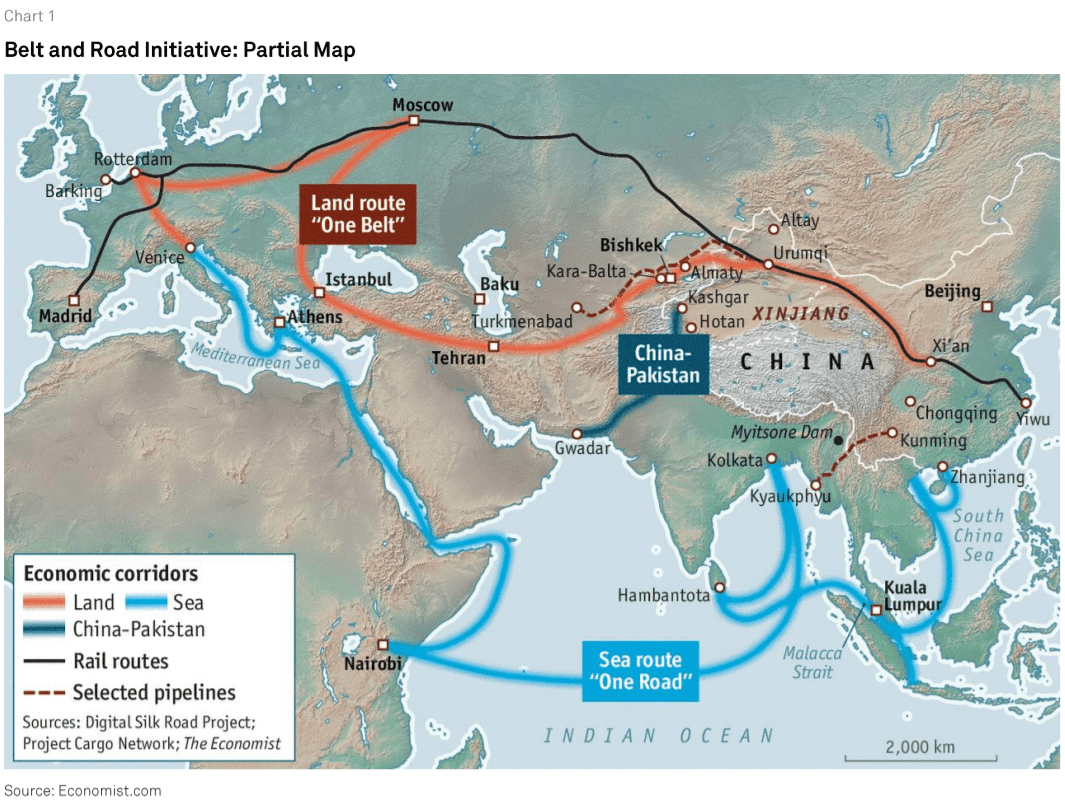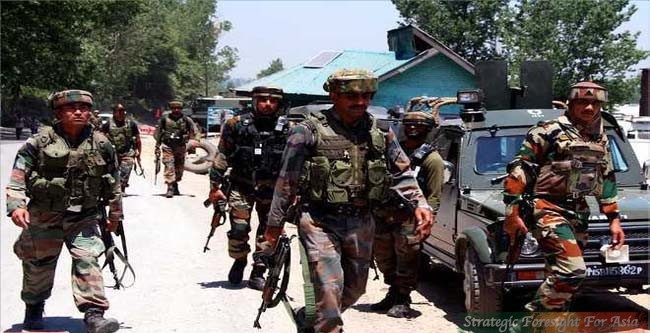 Crisis Management is no easy field when it comes to handling a least expected or rarest of the terrorist incident that took place on 15 March 2019 at the two mosques of Christchurch in New Zealand. It was an unfortunate Friday when an Australian born named Brenton Tarrant opened fire at the people who came to offer Friday prayers at Al Noor Mosque and Linwood Islamic Centre. Around 49 people were killed, and 20 were seriously injured in the tragic incident of mass shootings which was also live streamed by the shooter himself. This crisis was of serious nature in Christchurch for two main reasons; first, New Zealand is known as one of the most peaceful countries in the world where terrorist incidents rarely happen. Second, Islamophobia and/or racism are not common trends in Kiwi society. Muslims constitute only 1% of NZ’s population. A country with lesser experience of managing terrorist or xenophobic incited violence cannot be expected to respond to the March 15 crisis with maturity and wisdom.
Crisis Management is no easy field when it comes to handling a least expected or rarest of the terrorist incident that took place on 15 March 2019 at the two mosques of Christchurch in New Zealand. It was an unfortunate Friday when an Australian born named Brenton Tarrant opened fire at the people who came to offer Friday prayers at Al Noor Mosque and Linwood Islamic Centre. Around 49 people were killed, and 20 were seriously injured in the tragic incident of mass shootings which was also live streamed by the shooter himself. This crisis was of serious nature in Christchurch for two main reasons; first, New Zealand is known as one of the most peaceful countries in the world where terrorist incidents rarely happen. Second, Islamophobia and/or racism are not common trends in Kiwi society. Muslims constitute only 1% of NZ’s population. A country with lesser experience of managing terrorist or xenophobic incited violence cannot be expected to respond to the March 15 crisis with maturity and wisdom.
This is where the NZ leadership emerged as a heartwarming surprise to the world. The crisis management under NZ Prime Minister Jacinda Ardern is a classic combination of head and heart. While she impeccably devised early warning and risk analysis and took decisions to improvise gun laws for better conflict prevention, she went a step ahead in comforting the aggrieved families of the incident through a personal visit. Within a week of the tragedy, the NZ government came up with multiple strategies to calm down the situation as well as transform the negative environment into a positive one. Ardern clearly termed the incident an act of terrorism; she declared Tarrant as nameless, she banned semi and automatic weapons; she promised the nation that this kind of tragedy will never happen again. She was in more profound sorrow; her demeanor, her eyes, her every part of body and mind was reflective of the grief she was going through as head of the state. After more than two weeks, Ardern is unfolded as a lady of compassion and kindness. It is not only kindness which makes her a remarkable leader, but it is also her sincere urge and effort to find the root cause of the incident and control the triggering dynamics for such violence in future.
Gun control has its own implications. The U.S. has been a brutal victim of gun violence for more than two centuries. Every year, there are more killings through gun violence than other types of violence or terrorism, in the U.S. It hasn’t gathered enough courage to control gun violence and has not taken any decision to ban automatic weapons. Gun control is not easy. At a higher level, it hits the war/weapon industry, and at the local level, a country has to see the willingness of the masses to abandon their weapons due to one tragedy. According to an analysis published in the Independent, disposing off the guns may cost $ 200 million to New Zealand. Developing consensus politically and at a mass level is also not easy yet what seems different in the case of New Zealand was its mature and like-minded politicians and society. None of the social and political factions in NZ subscribed to opposing stance. They all hailed with unity in thought process and decision making. Ardern did not shy away to call Tarrant as a terrorist, a supporter of white supremacy. She admitted her government and intelligence failure to employ timely and efficient crisis prevention mechanism.
Ardern further beefed up the security and surveillance around worship places especially mosques and Islamic centers. Though as heart-wrenching as Christchurch shootings were, the international community praises Ardern’s compassionate crisis management skills which many developed countries failed to pursue despite having been the victim of terrorism, racism and xenophobic incidents in the past. In a few days, the PM held dialogue with religious scholars of all Islamic centers in NZ, she also got engaged with minority community through making herself available to common people. She attended the funeral and led a public procession the following Friday while donning Hijab in solidarity with Muslims. She also ordered maximum facilitation for visa procedures for victim families in their home countries and offered financial assistance in this regard too. This was not only the Prime Minister but the response from entire NZ society. People came out of their houses, teenagers paid tributes through singing, different communities raised funds for victim families and survivors, etc. Media, which easily becomes conflict entrepreneur in such crisis situation anywhere in the world, played a positive role by giving full coverage to NZ during the last three weeks.
Looking at NZ, its leadership, society, and response to a tragedy which is capable enough to freeze one’s thinking ability especially. If the country is safe of xenophobic violence, what are those reasons that made NZ act and behaved like this? Is this because of a woman in power? Does every woman behave like Ardern during such nerve wreaking crisis situation? Or is it because NZ could not react like western countries where such incidents are sufficiently taken to term a terrorist as mentally unstable or psychopath euphemistically? Was there any cost-benefit analysis before providing a multi-pronged mechanism of conflict prevention along with conflict transformation? Seeing in the prism of academic literature on peace studies and conflict resolution, New Zealand represented a classic case study for efficient and target-oriented conflict prevention and conflict transformation during these three weeks. The policy measures such as banning the automatic weapons, declaring it as an act of terrorism, confessing state failure for providing security to the minority, etc. were conflict preventive measures. Being compassionate, attending funerals, lending a helping hand to victim families and survivors, wearing Hijab, apologizing each and everyone personally were the essence of conflict transformation approach. It instantly transformed the negative air into a positive one. We have heard there is no concept of morality in international relations. But the approach of conflict transformation is based on kindness, forgiveness, apology, respect, reconciliation and peaceful co-existence.
A single act of kindness of embracing and sharing the pain and agony of the aggrieved family by Ardern proved as immensely impactful. It took her a long way to make her people respond in the same style of kindness and empathy. It’s always the leader who makes people follow him or her. Feminist perspective advocates the idea of inclusion of women in politics, peacebuilding and conflict resolution process. The inclusion of women humanizes and empathizes peacebuilding process and crisis management because empathy, compassion, love, nurturing the other are referred to as feminine qualities. But not every female leader has shown this compassionate maturity and wisdom in the international community. Ardern ‘humanized’ the crisis management process which is usually taken as a daunting task under such circumstances. A woman in power did play her role, but it’s the effort to ‘humanize’ the process of crisis management that worked wonders. It’s high time for international community and especially countries with emerging trends of xenophobia and Islamophobia to empower their women and humanize both men and women to contribute to the policy and decision making domain of their respective countries. This is not only a good and useful pro-active conflict prevention measure but also an avenue to learn from New Zealand experience to reject hatred and promote humanity. New Zealand proved Christchurch attack was an opportunity to grow bigger, act more mature and shun the politics of hate and xenophobia. The world has ample to learn from NZ.
The writer is an Assistant Professor in Peace and Conflict Studies at the National Defence University, Islamabad.
Related Topics
DRIVERS, DECISIONS, DILEMMAS: UNDERSTANDING THE KASHMIR CRISIS AND ITS IMPLICATIONS
![]()




Be the first to comment